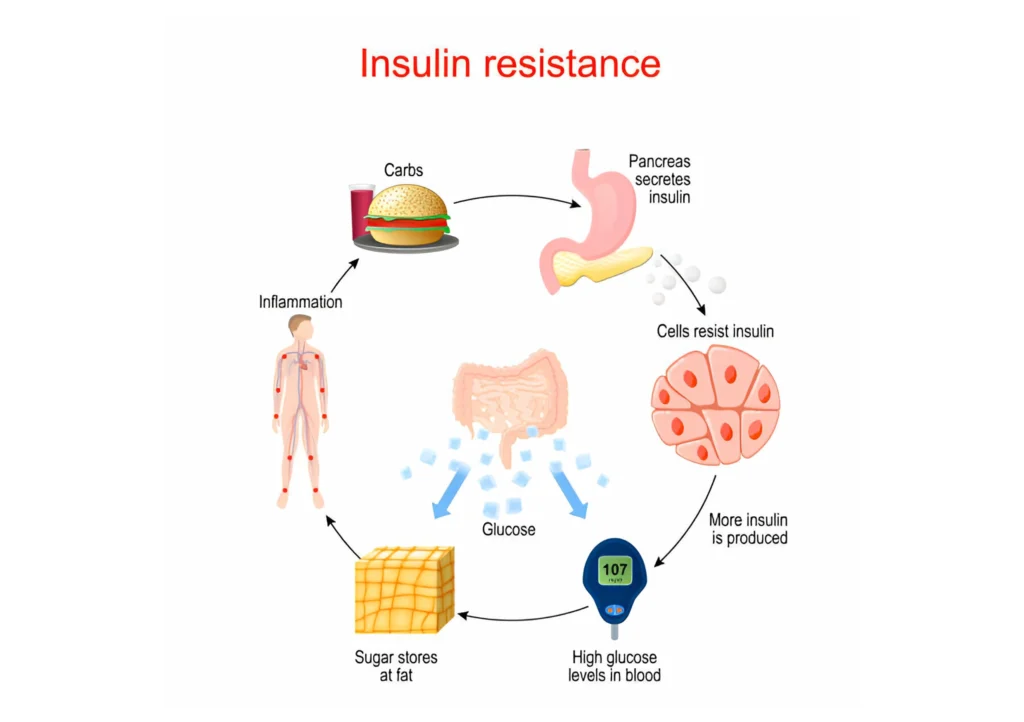Stress is an inevitable part of life, whether it’s due to daily challenges or unexpected events. While we often associate stress with feelings of anxiety or frustration, it also has deeper effects on our body, particularly on blood sugar levels. Understanding the relationship between stress and blood sugar is crucial for maintaining overall health, especially for those at risk of diabetes or other metabolic disorders. This article will explore the mechanisms behind this connection and provide practical strategies to manage both effectively.
How Stress Affects Blood Sugar Levels
When stress hits, our body’s natural reaction is to prepare for action. This is thanks to the release of stress hormones like cortisol and adrenaline, which are part of the “fight or flight” response. These hormones trigger a release of glucose into the bloodstream to provide quick energy for confronting or escaping perceived threats. In the short term, this mechanism helps the body cope with stressful situations, but when stress becomes chronic, it can lead to a constant surge in blood sugar levels.
The Role of Stress Hormones (Cortisol and Adrenaline)
Cortisol, the main stress hormone, plays a significant role in blood sugar regulation. It promotes gluconeogenesis, a process where the liver produces glucose from non-carbohydrate sources, ensuring your body has enough energy to deal with stress. However, prolonged elevation of cortisol levels can cause persistent high blood sugar, which in turn may lead to insulin resistance. Insulin resistance occurs when cells stop responding effectively to insulin, the hormone responsible for moving glucose into cells for energy. Over time, this can increase the risk of developing type 2 diabetes and other metabolic conditions.
Chronic Stress and Insulin Resistance

Chronic stress doesn’t just spike blood sugar temporarily—it can also disrupt your body’s ability to manage it in the long run. With frequent spikes in blood sugar due to stress, insulin becomes less effective. The constant demand for insulin leads to insulin resistance, causing high blood sugar levels to persist even without food intake. This is why managing stress is not only essential for mental health but also for preventing metabolic disorders.
The Reciprocal Relationship Between Blood Sugar and Stress

It’s not just stress that affects blood sugar—blood sugar fluctuations can, in turn, impact stress levels. Low blood sugar, or hypoglycemia, can trigger anxiety, irritability, and even panic. This is because the brain relies heavily on glucose as its primary source of energy. When blood sugar levels drop, the brain struggles to function properly, leading to heightened emotional responses and stress.
How Low Blood Sugar Can Exacerbate Stress
Have you ever felt jittery, confused, or irritable when you’re hungry? That’s hypoglycemia at work. These emotional swings aren’t just uncomfortable—they can make it harder to handle stress. When blood sugar dips too low, it triggers the release of stress hormones, compounding the cycle of stress and sugar instability.
Fluctuating Blood Sugar and Emotional Volatility
Unstable blood sugar levels, characterized by sudden highs and lows, can make stress management even more difficult. This rollercoaster effect on blood sugar creates a feedback loop, where stress affects sugar levels, and fluctuating sugar levels, in turn, increase stress reactivity. This cycle can lead to emotional volatility, making it harder to stay calm in stressful situations.
Practical Strategies for Managing Stress and Blood Sugar Levels

Managing both stress and blood sugar requires a balanced approach that incorporates lifestyle changes. First, reducing stress through mindfulness practices such as meditation or deep breathing can lower the release of stress hormones. Regular exercise is another powerful tool that helps in reducing stress while stabilizing blood sugar levels by improving insulin sensitivity. Getting enough sleep, ideally 7-9 hours per night, is also critical as poor sleep can elevate stress hormones and disrupt blood sugar balance.
Balanced Diet for Blood Sugar Control

Diet plays a key role in managing blood sugar. A balanced intake of whole grains, lean proteins, healthy fats, and plenty of vegetables can help keep blood sugar levels stable. It’s also important to avoid skipping meals, as this can lead to low blood sugar and increased stress. Eating regular, balanced meals throughout the day ensures a steady supply of energy and keeps both stress and blood sugar in check.
The Role of Social Support in Managing Stress and Blood Sugar

It’s often said that a problem shared is a problem halved, and this is particularly true when managing stress. Social support from friends, family, or community groups can reduce stress and improve blood sugar regulation. Studies have shown that people who feel connected to others experience lower levels of stress hormones and better overall health. On the other hand, isolation and loneliness can increase stress and destabilize blood sugar levels.
Importance of Mindset and Positive Emotions
Research has demonstrated that maintaining a positive emotional state can also influence blood sugar regulation. In one study, participants who watched a humorous movie before eating showed a better insulin response compared to those who didn’t. This shows that managing stress isn’t just about avoiding negative emotions but also about cultivating positive ones to enhance overall well-being.

